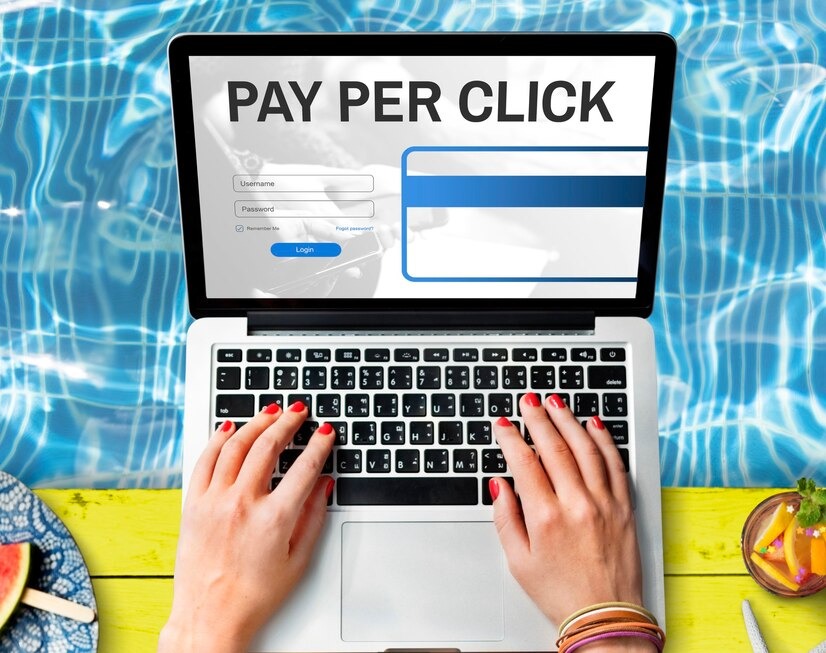Pay-per-click (PPC) advertising has become a popular method for businesses to drive traffic to their websites and increase sales. With platforms like Google Ads and Bing Ads, businesses can target specific audiences and pay only when users click on their ads. However, a common concern is the cost of PPC ads. Are they really expensive? In this post, we will explore the factors that influence PPC ad costs and whether they are worth the investment.
1. What is PPC Advertising?
PPC stands for Pay-Per-Click, a type of online advertising where advertisers pay each time a user clicks on one of their ads. It’s often used in search engine marketing, where ads appear on search engine results pages (SERPs). For example, when someone searches for “best shoes online,” a PPC ad might appear at the top of the search results, and the advertiser pays when a user clicks on the ad.
PPC ads can also appear on social media platforms, websites, and other online spaces. Advertisers choose keywords related to their products or services and bid on those keywords. The higher the bid, the more likely their ad will appear in search results or on websites relevant to their target audience.
2. Factors Affecting PPC Ads Cost
PPC ads cost is not fixed and can vary greatly depending on several factors. Here are some of the most important factors that affect PPC ad costs:
a. Competition for Keywords
The level of competition for certain keywords plays a significant role in determining PPC ad costs. If a keyword is highly competitive, advertisers will have to bid more money to get their ads shown. For example, competitive industries like insurance, law, or real estate often have high PPC ad costs because many businesses are bidding on the same keywords.
Conversely, if you choose less competitive or more niche keywords, you may pay less per click. However, you must ensure that these keywords are still relevant to your target audience to achieve conversions.
b. Quality Score
Google and other search engines use a quality score to determine the relevance of your ad to the user’s search query. This score is based on factors like ad copy, landing page quality, and click-through rate (CTR). Ads with a high Quality Score are rewarded with lower costs per click, while ads with a low Quality Score may face higher costs.
A high quality score means that your ad is relevant and useful to users, leading to better ad placement and a lower PPC ad cost. To improve your quality score, focus on creating high-quality, relevant ads and ensure that your landing page is user-friendly and matches the ad’s message.
c. Ad Rank
Ad Rank is another factor that influences PPC ad costs. It determines the position of your ad on the search results page. Ad Rank is determined by your bid amount and Quality Score, among other factors. If your ad rank is high, your ad is more likely to appear at the top of the search results.
While increasing your bid can improve your ad rank, focusing on improving your quality score is a more cost-effective way to reduce PPC ad costs. The higher your quality score, the lower your cost per click.
d. Geographic Location
The location where you want your ads to appear also affects PPC ad costs. Ads targeted at specific geographic areas may cost more depending on the demand and competition in that location. For instance, running ads for a service in a big city might be more expensive than running ads in a smaller town due to higher competition in urban areas.
You can choose to run ads in specific regions to manage your budget more effectively. This is especially useful for businesses that only serve certain areas or wish to focus on high-value regions.
e. Ad Scheduling
When you choose to run your PPC ads, you can also influence cost. Ads that are shown during peak hours, when competition is higher, may cost more. On the other hand, running ads during off-peak hours or weekends might help you save on costs.
By analyzing your data, you can figure out when your target audience is most likely to engage with your ads, allowing you to adjust your ad schedule for optimal results.
f. Industry and Product Type
The type of product or service you offer plays a significant role in determining PPC ad costs. Certain industries with high customer lifetime value, like law or healthcare, tend to have higher PPC ad costs because advertisers are willing to pay more for each click. For businesses selling lower-cost products, PPC ads may be less expensive but still effective in driving traffic.
If your industry is competitive, you may have to adjust your budget to remain competitive in the auction. However, PPC ads can still offer a strong return on investment (ROI) if you target the right audience.
3. Is PPC Advertising Worth the Cost?
While PPC ads can be costly, they can also provide great returns for your business. Here are some reasons why PPC ads are worth the investment:
a. Targeted Traffic
PPC ads allow you to target specific audiences based on their search queries, demographics, location, and more. This ensures that your ads are reaching the people most likely to convert, which increases the efficiency of your marketing efforts.
b. Quick Results
Unlike organic search engine optimization (SEO), which can take months to show results, PPC ads provide immediate visibility. You can start seeing traffic and conversions as soon as your campaign is live, making PPC a great option for businesses looking for fast results.
c. Measurable ROI
PPC advertising is highly measurable. You can track your ad performance in real-time and make adjustments as needed to optimize your campaigns. This means you can closely monitor your ROI and adjust your budget to ensure that you’re spending wisely.
d. Control Over Budget
With PPC, you have full control over your ad budget. You can set daily or monthly limits to ensure that you don’t overspend. This flexibility allows you to manage your expenses and scale your campaigns according to your business goals.
4. How to Manage PPC Ads Cost Effectively
If you’re concerned about the cost of PPC ads, there are ways to manage your budget and make your campaigns more cost-effective:
- Focus on Long-Tail Keywords: These are more specific, less competitive keywords that often have lower costs per click while still being highly relevant to your target audience.
- Optimize Your Landing Pages: A well-designed, relevant landing page can improve your quality score and reduce your PPC ad costs by increasing your conversion rate.
- Use Negative Keywords: Exclude irrelevant search terms to avoid wasting your budget on clicks that aren’t likely to convert.
- Monitor and Adjust Your Campaigns: Regularly review your ad performance and make adjustments to bidding, targeting, and ad copy to ensure you’re getting the most value for your money.
Conclusion
PPC ads can be costly, but they offer a high level of control and can provide significant returns for businesses that use them effectively. Factors like competition, keyword choice, and ad quality influence PPC ad costs, but by focusing on the right strategies, you can manage your budget and maximize your ROI. Whether or not PPC ads are costly depends on how well you optimize your campaigns and target the right audience.
If you’re careful with your budget and keep a close eye on your campaign performance, PPC advertising can be a highly valuable tool for driving traffic and generating sales for your business.



